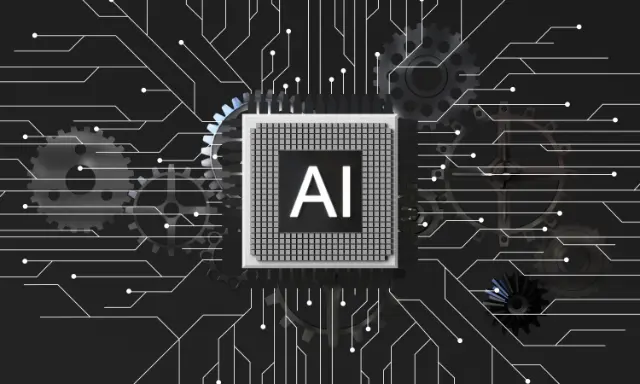Empowering Quality Control with Automated Data Entry: A Leap Towards Manufacturing Excellence
In the fast-paced manufacturing industry, ensuring product quality is paramount. However, traditional methods of quality control data entry are often manual and error-prone, leading to inefficiencies and potential inaccuracies. Quality Control Data Entry Automation offers a transformative solution, leveraging the power of Python, AI, and cloud-based technologies to streamline this crucial process. By automating data collection, analysis, and reporting, manufacturers can significantly enhance their quality control operations and achieve operational excellence.

Python, AI, and the Cloud: A Trinity for Quality Control Data Entry Automation
Unattended Bots: Automating Repetitive Tasks with Python
Python’s versatility and power make it an ideal choice for developing unattended bots that can automate repetitive and time-consuming data entry tasks in quality control. These bots can be programmed to collect data from various sources, such as sensors, inspection forms, and test reports, ensuring accuracy and consistency. By automating these tasks, manufacturers can free up their human workforce to focus on more strategic initiatives.
Attended Bots: Enhancing Human-Machine Collaboration
Attended bots, also built with Python, provide an additional layer of automation by collaborating directly with human workers. These bots can assist with data entry, verification, and analysis, providing real-time guidance and support. The level of customization available in Python allows for the creation of highly tailored attended bots that can adapt to specific quality control processes and requirements.
Cloud Platforms: A Powerful Orchestration Hub
Cloud platforms offer a comprehensive suite of features and capabilities that far surpass traditional RPA/workflow tools orchestrators. They provide a scalable, secure, and reliable infrastructure for managing and executing automation tasks. Cloud-based automation orchestrators can seamlessly integrate with various data sources, applications, and AI services, enabling end-to-end process automation.
AI: Enhancing Accuracy and Handling Edge Cases
AI techniques, such as image recognition, natural language processing (NLP), and generative AI (Gen AI), can significantly enhance the accuracy and capabilities of quality control data entry automation. Image recognition can automate the inspection of product images, identifying defects and anomalies with precision. NLP can extract insights from unstructured text data, such as inspection notes and test reports, uncovering hidden patterns and trends. Gen AI can generate reports and summaries, providing valuable insights for quality control managers.
By leveraging the combined power of Python, AI, and the cloud, manufacturers can achieve an unprecedented level of automation for their quality control data entry processes. This automation not only improves efficiency and accuracy but also frees up human workers to focus on higher-value tasks, driving innovation and continuous improvement in the manufacturing industry.

Building the Quality Control Data Entry Automation with Python and the Cloud
Process Analysis and Sub-Process Automation
The first step in building a successful automation solution is to thoroughly analyze the processes involved in quality control data entry. This includes identifying the various sub-processes, such as data collection, data validation, report generation, and issue identification. Each sub-process can then be automated using Python and cloud-based services.
Data Collection Automation
Python scripts can be developed to collect data from various sources, such as sensors, inspection forms, and test reports. These scripts can be scheduled to run at regular intervals or triggered by specific events, ensuring that all relevant data is captured in a timely manner.
Data Validation Automation
Once the data has been collected, it needs to be validated to ensure its accuracy and completeness. Python scripts can be used to perform data validation checks, such as checking for missing values, incorrect data formats, and outliers. Data validation helps to improve the quality of the data used for further analysis and reporting.
Report Generation Automation
Python can be used to generate reports based on the collected and validated data. These reports can be customized to include specific metrics, charts, and insights relevant to quality control managers. Automated report generation saves time and ensures that reports are always up-to-date and accurate.
Issue Identification Automation
Python scripts can also be used to identify potential quality issues based on the collected data. By analyzing data trends and patterns, these scripts can detect anomalies and deviations that may indicate potential problems. Early identification of quality issues allows for prompt investigation and corrective action.
Data Security and Compliance
Data security and compliance are critical considerations in any automation project, especially in the manufacturing industry. Python scripts can be written to adhere to industry standards and regulations, ensuring that sensitive data is protected and handled responsibly.
Python vs. No-Code RPA/Workflow Tools
While no-code RPA/workflow tools offer a low-code/no-code approach to automation, they often lack the flexibility and customization capabilities of Python. Python is a powerful and versatile programming language that allows for the development of highly tailored automation solutions that can adapt to specific quality control processes and requirements.
Algorythum’s Approach
Algorythum takes a different approach to automation because we recognize the limitations of off-the-shelf automation platforms. Our team of experienced engineers leverages Python and cloud-based services to build custom automation solutions that meet the unique needs of our clients. This approach ensures that our clients achieve the highest levels of efficiency, accuracy, and scalability in their quality control processes.

The Future of Quality Control Data Entry Automation
The future of quality control data entry automation is bright, with emerging technologies offering exciting possibilities to further enhance the proposed solution.
Edge Computing: Edge computing brings computation and data storage closer to the source of data, enabling real-time data processing and analysis. This can be particularly beneficial for quality control applications where data needs to be processed and analyzed quickly to identify potential issues.
5G and IoT: The advent of 5G networks and the proliferation of IoT devices will lead to an explosion of data generated from sensors and other connected devices. This data can be leveraged by quality control automation systems to provide even deeper insights and predictive analytics.
Artificial Intelligence (AI): AI techniques, such as machine learning and deep learning, can be used to develop more sophisticated automation solutions that can handle complex data analysis and decision-making. AI-powered quality control systems can continuously learn and improve, identifying patterns and trends that may be missed by traditional methods.
Blockchain: Blockchain technology can be used to create secure and tamper-proof records of quality control data. This can improve transparency and traceability throughout the manufacturing process, ensuring that data is accurate and reliable.
Subscribe and Contact Us
To stay updated on the latest advancements in quality control data entry automation and other industry-specific automation solutions, subscribe to our newsletter.
If you are interested in implementing a custom quality control data entry automation solution for your manufacturing business, contact our team of experts today. We offer a free feasibility assessment and cost estimate to help you get started.

Algorythum – Your Partner in Automations and Beyond
At Algorythum, we specialize in crafting custom RPA solutions with Python, specifically tailored to your industry. We break free from the limitations of off-the-shelf tools, offering:
- A team of Automation & DevSecOps Experts: Deeply experienced in building scalable and efficient automation solutions for various businesses in all industries.
- Reduced Automation Maintenance Costs: Our code is clear, maintainable, and minimizes future upkeep expenses (up to 90% reduction compared to platforms).
- Future-Proof Solutions: You own the code, ensuring flexibility and adaptability as your processes and regulations evolve.









